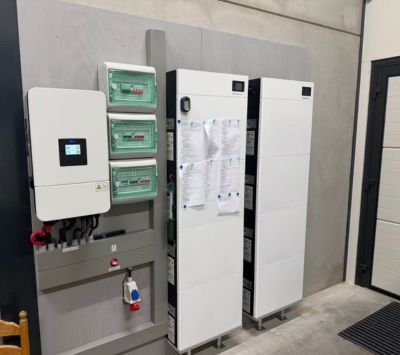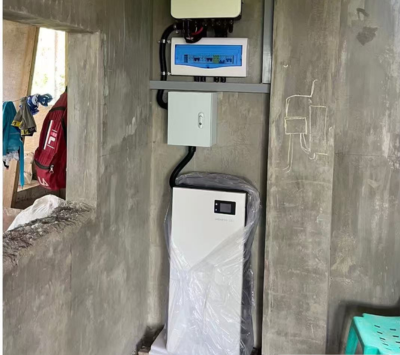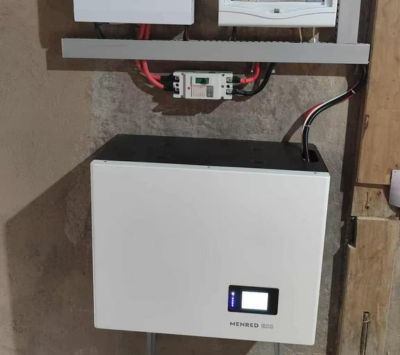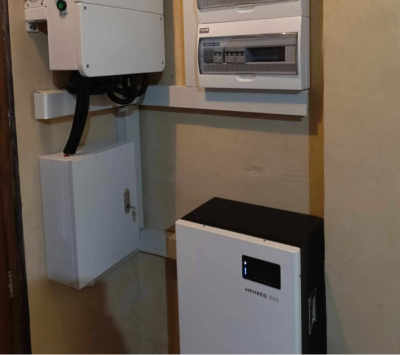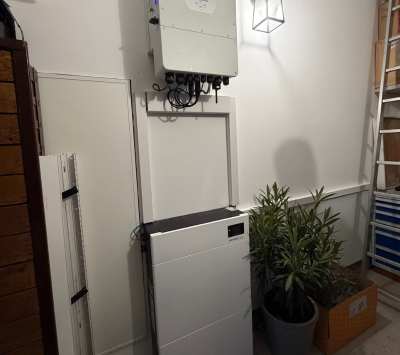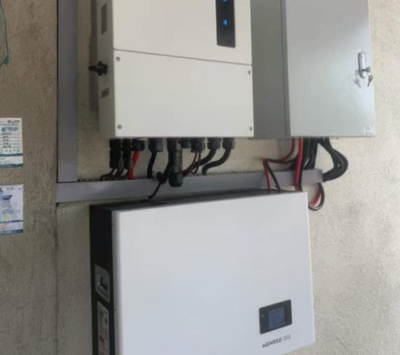Optimize your solar energy system with the cutting-edge integration of the Solis 5KW inverter and MENRED ESS lithium battery, a match designed for peak performance and sustainability. As a leading brand in the renewable energy sector, Solis brings to the table unparalleled efficiency and reliability with its 5KW inverter. Paired with the innovative MENRED ESS lithium battery, this combination offers an eco-friendly solution to energy storage and management. Ideal for residential and commercial use, it ensures a continuous power supply, maximizing energy independence and reducing carbon footprint. Embrace the future of energy with Solis’s trusted technology and enhance your green living today.

How many solar panels do I need for a Solis 5kW hybrid inverter?
Determining the number of solar panels required for a Solis 5kW hybrid inverter is essential for optimizing your solar energy system. According to Solis, the official specifications for this 5kW hybrid inverter include support for up to 8KW of PV input, making it a robust choice for residential applications. The inverter features dual photovoltaic (PV) inputs, with a start-up voltage of 90V, a standard operating voltage of 330V, and it can accommodate a maximum PV input of 600V. Its MPPT (Maximum Power Point Tracking) voltage range is 90-520V, with a maximum input current of 16A and a max short circuit current of 24A. These specifications indicate that the Solis 5kW hybrid inverter is designed to efficiently manage the energy output from your solar panels, making it suitable for most small households looking to harness solar power effectively.
Solis 5kw hybrid inverter Features:
• Generator connectivity with multiple input methods and automatic generator On/Off control • Automatic UPS switching
• 10-second 200% surge power backup overload capability
• Supports 1ph and 3ph flexible connection with max 36kW in parallel
• Up to 135A max charge/discharge current
• 6 customizable charge/discharge time settings
• Compatible with lead-acid and lithium batteries, with multiple battery protection features • Supports peak shaving control in both “self-use” and “generator” mode
Grid connection standard:
NRS 097-2-1, IEC 62116, IEC 61727, IEC 60068, IEC 61683, EN 50530, MEA, PEA
Safety/EMC standard:
IEC/EN 62109-1/-2, EN 61000-6-2/-3
It’s noteworthy that the Solis 5kW energy storage inverter features a simple LED indicator on its surface, rather than the touchable LCD display found on many mainstream inverters. This design choice effectively reduces the product’s failure rate, ensuring more stable operation. Users can configure the inverter through Bluetooth connectivity with a mobile app, which offers a wide array of customizable settings. This innovative approach allows for a user-friendly experience, enabling efficient management and monitoring of the inverter’s performance without the need for a conventional display screen.

Solis 5kW storage inverter and MENRED ESS LFP.6144.W 6.14kWh LiFePO4 battery is the official Solis recommended system pairing, a single 6.14kWh battery can support 5kW inverter output. From the video, you can see that the SOC on the battery display is the same as the SOC display on the Solis APP, which means that the communication is successful and working properly.
The MENRED ESS LFP.6144.W, a 6.144kWh lithium battery, is recognized as an officially approved battery brand by Solis, listed on their white list. This enables direct selection of the battery brand within the app, facilitating communication between the battery and the inverter via CAN protocol. The LFP.6144.W stands out for its exceptional performance, supporting a 1C charge and discharge current, meaning the 6.144kWh battery can handle charging and discharging currents of up to 120Amps. This capability allows users to design solar energy storage systems that are more cost-effective. Utilizing Higee’s Grade A battery cells, which have been certified by UL and TUV, enhances the system’s reliability and safety.
This model has already passed TUV Nord’s IEC-62619:2022 and IEC61000-1/3 standards and has completed all testing under ETL’s UL1973:2022. It is currently in the factory inspection phase, with an ETL UL-1973:2022 certification anticipated by March. This advancement is set to provide users with a more cost-competitive edge in creating solar energy storage systems, underscoring our ongoing commitment to delivering superior solar energy solutions.

